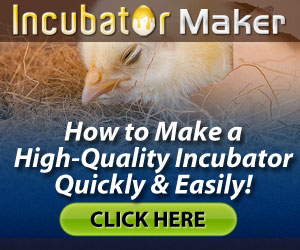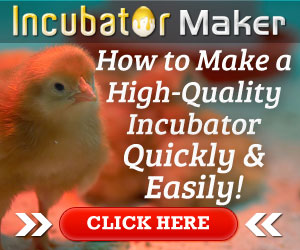Tried and Tested Techniques of Incubation Hatching
You need to know certain important things about incubation hatching, such as the right temperatures and environmental conditions suited to the eggs of the species of bird that you’re hatching. Yes, while poultry farming is generally taken to refer to chickens, the simple fact is that it can refer to other kinds of birds as well, including ducks and geese and other types of fowl.
Remember that each kind of fowl will require different conditions when storing and incubating the eggs, so make sure that you take a training course or at least read up on the subject at the very least. When storing the eggs before incubating, make sure that you maintain the recommended environmental conditions, and also that you move the eggs about a little, just as they would move if they were with their mother. Now the eggs are usually put into storage with the narrowest end facing down, but even so, they should be shifted about slightly, as this stimulates the tiny embryo within them. Remember that you cannot store the eggs for too long.
A week is really the outside limit where the viability of the eggs is maintained. Ideally, though, you should place the eggs for incubation hatching within about three days or so of them being laid, just to be safe. You may need to do some careful planning to ensure that you can hatch out the maximum number of eggs, and to ensure that you don’t have to keep eggs in storage for so long that they do not hatch at all. Now, since the eggs are stored at relatively low temperatures, you need to ensure that they come to normal environmental temperatures at a relatively slow pace.
Do not allow them to warm too quickly under any conditions, it is imperative that moisture not be allowed to form on the outer surface of the egg. This moisture can collect disease producing organisms, and lead to reduced viability in the eggs of your stock. Incubators come in different sizes, and the one that you purchase needs to reflect not only your current needs, but also your vision of how you intend your business to grow in future.
If you intend to hatch eggs almost continuously, it is recommended that you purchase different units for the incubation and hatching stages. This will give you a continuous output of young hatchlings. If, on the other hand, you take the young chicks out in batches when incubation hatching, then a single incubator will work just fine.




